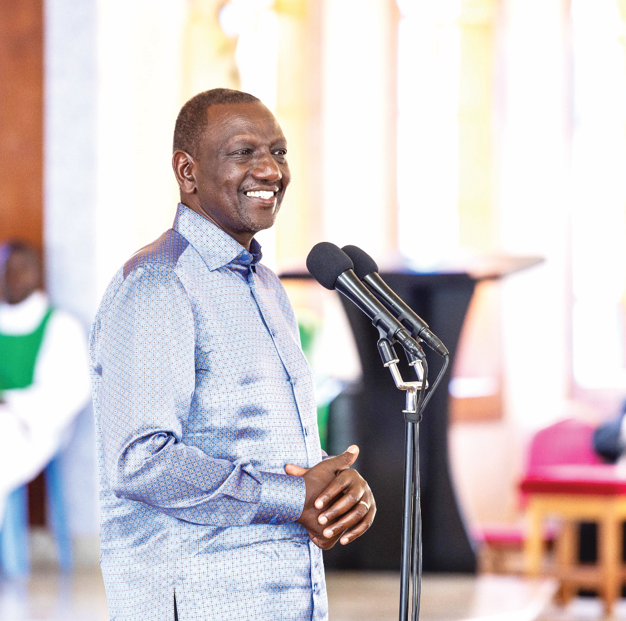Ruto resorts to archaic ways to salvage legitimacy
By Suba Churchill, November 15, 2024Reports that President William Ruto’s Head of Public Service and Chief of Staff Felix Koskei issued a memo titled “State House Access Management Measures”, in which he granted State House Comptroller Katoo Ole Metito exclusive authority to control visits to the presidential residence is the clearest confirmation that the President has lost the moral right to rule and is planning to insulate himself from threats to his authority, real or imagined.
The memo followed the impeachment of Rigathi Gachagua, Ruto’s former deputy with whom he was elected on a United Democratic Alliance (UDA) ticket in 2022. UDA is the largest political party in the Kenya Kwanza coalition that includes others like Ford Kenya and the Amani National Congress, led by National Assembly Speaker Moses Wetang’ula, and Prime Cabinet Secretary Musalia Mudavadi, respectively.
Also called legitimacy, the moral authority to lead can only be conferred willingly by the people. Legitimacy must be earned, and once earned, one has to endeavour to add to it with every act of commission or omission one takes.
Loss of legitimacy spawns a foreboding sense of insecurity, prompting those in power to resort to measures that create a false sense of authority, like President Ruto seems to be doing now, in a mistaken belief that Machiavellian manoeuvres help to regain legitimacy.
It’s in this context that Koskei’s dispatch on new protocols and control of visits to State House should be understood.
But how did the situation deteriorate so quickly for President Ruto and his Kenya Kwanza allies, leading to the unprecedented breach of Parliament on June 25 as the National Assembly adopted the 2024 Finance Bill, and the subsequent decision to deploy the military to help retrieve the country from the brink of a political precipice and apocalypse, and the anarchy that would have ensued?
President Ruto was elected on a “bottom-up” economic transformation and empowerment agenda, pledging to adopt pro-poor policies and programmes that would put more money into people’s pockets.
He chastised a section of Kenya’s founding fathers, characterised as ‘dynasties’, for finding opportunities for self-enrichment, and for laying the foundation for concentration of both economic and political power in the same few hands. He equally blamed them for the corruption syndrome that has now become universally recognised as “State capture”.
President Ruto’s economic blueprint had an implementation framework, delineating the cost of living, eradication of hunger, job creation, and improving foreign exchange balance as urgent priorities.
But the President’s efforts to expand the tax revenue base, through fiscal policies that have increasingly targeted every available income, has seen his regime run into headwinds. This, coupled with punitive taxes for the affordable housing and social health schemes, have put the President and his government on the cliff edge. The President promised to increase the affordable housing supply from two percent to 50 percent.
But it’s the President’s massive failure on the governance front that has wiped out any legitimacy that may have been left of his leadership. While the President pledged to eradicate what he rightly described as State capture, critics now say he and his cronies are the highest beneficiaries of State largesse.
Business interests the President and his family are associated with have won lucrative tenders under circumstances that reek of conflict of interest and possible breach and manipulation of public procurement procedures, despite his pompous speeches to the contrary.
Lack of accountability for extrajudicial killings and enforced disappearances could turn out to be the proverbial stroke that broke the camel’s back.
But rather than retrace his steps through sincere ways of regaining his legitimacy, the President and his handlers seem to think that repressing popular dissent will work.
While such tactics may have worked for his predecessors and mentors when they found themselves in similar situations, for Ruto the context has changed dramatically.
Kenya’s current constitutional and governance architecture, and the resultant civic consciousness, can make such tactics counterproductive.
— The writer is the Executive Director of the Kenya National Civil Society Centre;
suba_churchill@yahoo.com
